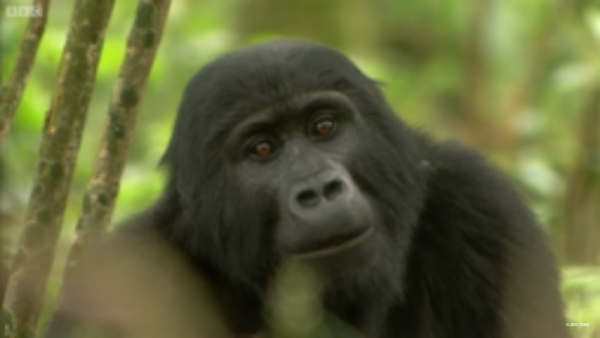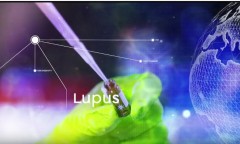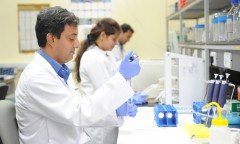By KM Diaz, | March 11, 2017

For the past three decades, Ebola virus has killed about the third of the gorilla's population and chimpanzee.
Scientists have developed an oral vaccine to combat Ebola virus specifically for use on wild apes.
To protect the human's closest relatives, researchers developed an oral vaccine to prevent the spread of Ebola virus in the wild as well as in the human populations. The vaccine sounds very promising, however, researchers run into several processes like political, ethical, and legal obstacles just to make a further study for the research.
Like Us on Facebook
For the past three decades, Ebola virus has killed about the third of the gorilla's population and chimpanzee. The virus is a threat to wild primates, and because humans and apes shared ancestry both of them combat against Ebola.
The spread of Ebola virus can be controlled with the use of a vaccine. But the real challenge to researchers is delivering the it to the huge population of wilds. Previously, conservationists developed hypodermic darts, however, there is a problem delivering it to wild animals living in a thick and tropical forest.
That's why oral vaccine have been developed, a potential solution for this problem. The vaccine will be injected on tasty baits to attract apes and will scatter it throughout their habitats. In addition, another form of oral vaccine may be developed in the future to combat another plague in the wild like anthrax.
Since 1983, there are more than 250 million baits with rabies vaccines delivered in the Europe, in which, the disease in the wild population decrease by 75 percent. The same effect of the oral vaccine was seen in North America.
The researchers from Thomas Jefferson University and the University of Cambridge begin the project in developing the oral vaccine to see if it's effective and will have a similar effect to wild apes. The Ebola vaccine; filorab1 combined with an inactive form of rabies virus will enter the bloodstream of apes which causes to develop a healthy immune response to resist the virus.
But before delivering the oral vaccine in the wild, it was tested first on ten captive chimpanzees from New Iberia Research Center in Louisiana. The chimps were monitored for almost a month to measure the amount of anti-Ebola virus in their blood and to assess if the vaccine has side effects.
In the 28-day period trial, the number of antibodies increased in volume which only proves that the chimps developed immunity against Ebola virus and no traces of side effects. The trial only shows that the oral vaccine has potential in combating Ebola virus.
However, the chimps in the trial were never exposed to Ebola virus after they were immunized. The scientists were not permitted to proceed to the next step which is exposing the chimps to the virus because of Endangered Species Act in 2015.
This means it is illegal to perform such biomedical research on chimps and other wild animals in the US. But the first trial on captive chimps is still legal in the US because the research helps the species as a whole.
-
Use of Coronavirus Pandemic Drones Raises Privacy Concerns: Drones Spread Fear, Local Officials Say

-
Coronavirus Hampers The Delivery Of Lockheed Martin F-35 Stealth Fighters For 2020

-
Instagram Speeds Up Plans to Add Account Memorialization Feature Due to COVID-19 Deaths

-
NASA: Perseverance Plans to Bring 'Mars Rock' to Earth in 2031

-
600 Dead And 3,000 In The Hospital as Iranians Believed Drinking High-Concentrations of Alcohol Can Cure The Coronavirus

-
600 Dead And 3,000 In The Hospital as Iranians Believed Drinking High-Concentrations of Alcohol Can Cure The Coronavirus

-
COVID-19: Doctors, Nurses Use Virtual Reality to Learn New Skills in Treating Coronavirus Patients












